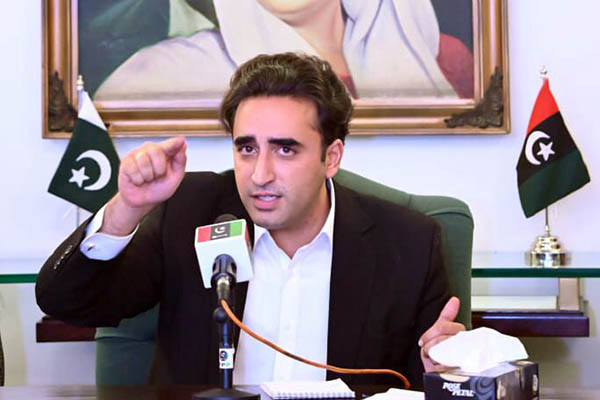Pakistan opts out of democracy summit in Washington
Pakistan opts out of democracy summit in Washington
Washington DC: Pakistan on Tuesday chose not to participate in the democracy summit taking place in Washington this week, opting instead to engage with the US on a bilateral basis to encourage democratic values. The virtual summit, led by the United States, begins today. China and Turkiye have not been invited to the summit.
The issue of Pakistan’s participation in the Second Summit for Democracy in the US had been under discussion for some time, particularly because it could potentially upset its “all-weather friend” China, which had not been invited to the summit. The decision had been a challenging one, with Pakistan weighing the benefits of participation against the potential risks to its diplomatic relationships.
China would be closely monitoring these overtures as the US has already annoyed Beijing by inviting Taiwan, China’s longstanding nemesis. Like the first democracy summit in 2021, both India and Pakistan were invited to the summit this time. India attended the last meeting and may do so this year as well. Pakistan had opted out of the first summit, reportedly on back of the Biden administration’s refusal to reach out to the then-prime minister Imran Khan.
Dawn reported that Beijing would want Pakistan to opt out of the ‘controversial’ moot but doing so will send negative signals to the US at a time when Islamabad wants Washington to be on its side to help secure a deal with the IMF.
According to the Dawn report, the decision to keep Turkiye out of the summit was another cause of concern for Pakistan. In a statement issued today, the Foreign Office said Pakistan values its friendship with the United States.
“Under the Biden Administration, this relationship has widened and expanded substantially. We remain committed to further solidifying this relationship for peace, stability, and prosperity in the region,” the statement said. Explaining the rationale for not taking a part in the summit, the FO said Pakistan had not been part of the summit process that commenced in 2021 and required countries to make certain national commitments.
“The Summit process is now at an advanced stage and therefore, Pakistan would engage bilaterally with the United States and co-hosts of the Summit to promote and strengthen democratic principles and values and work towards advancing human rights and the fight against corruption,” Pakistan said.
It, however, thanked the United States and the co-host countries for inviting Pakistan to attend the summit.
“As a vibrant democracy, the people of Pakistan are deeply committed to democratic values and generations of Pakistanis time after time have upheld their faith in democracy, human rights and fundamental freedoms,” the FO added.
It also underlined that the nation was celebrating the 50th anniversary of the 1973 Constitution which is the fountain of a democratic polity in Pakistan.
The virtual summit has been co-sponsored by the US Department of State and USAID on the theme of ‘Global Declaration of Mayors for Democracy’. The event will showcase the role of cities and subnational governments in the affirmation of democratic values and the renewal of democracy worldwide.
From March 29-30, the US will co-host the second ‘Summit for Democracy’ with the governments of Costa Rica, the Netherlands, the Republic of Korea and the Republic of Zambia.
US Secretary of State Antony Blinken will participate in most of the events. On March 28, Secretary Blinken will chair a virtual panel session on ‘A Just and Lasting Peace in Ukraine’ featuring Ukraine President Volodymyr Zelenskyy.
On March 29, the leader of each co-host government will participate in a virtual session. “While democracy requires more than credible elections, they shape public perception of democracy’s efficacy and are vital for expressing the will of the people,” said a document released by the US State Department before the summit.
“The integrity of a country’s elections — in other words, the degree to which they conform to international standards — is important for a government’s legitimacy, as well as domestic and international support,” the document added. The discussions will focus on efforts to end corruption in democratic nations.
There will be four sessions on each of the themes — International Cooperation for Anti-Corruption; Financial Transparency and Integrity; Non-governmental Stakeholder; and Technology and Anti-corruption.















Comments are closed.